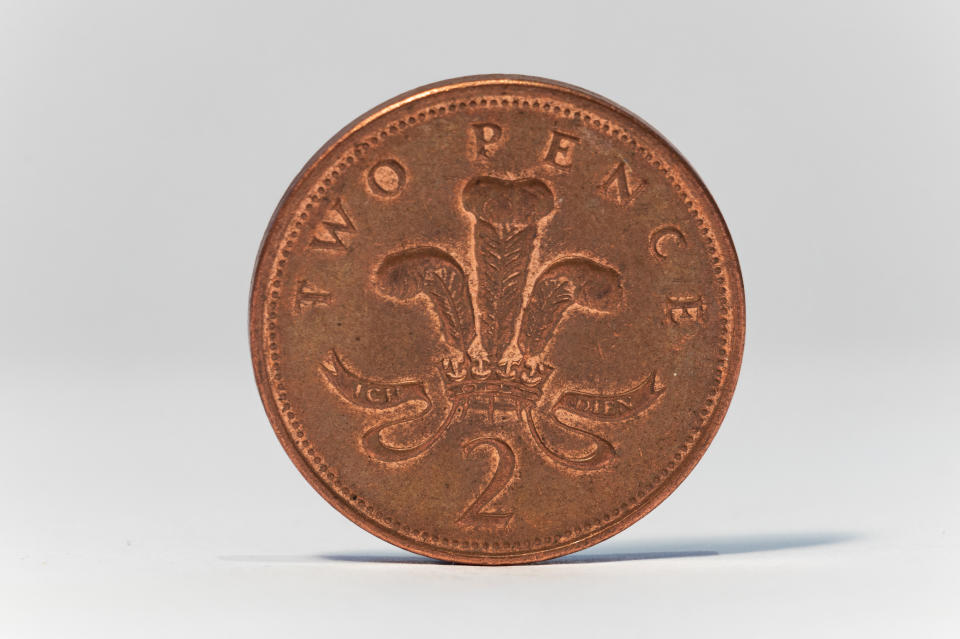Royal Mint could go 10 years without making new 2p or £2 coins

The Royal Mint has announced that it has no plans to produce any 2p or £2 coins for the next decade as demand for cash has dwindled over the last 10 years.
Figures in a report on the future of cash by the National Audit Office (NAO) show that in March, Royal Mint had 26 times as many £2 coins as it needed, and was sitting on six times as many 1p coins and eight times as many 2p pieces, with all its excess coins worth about £89m ($115m).
The decision is likely to hit older people and those on lower incomes the most, as they tend to rely more on cash, partly owing to the closure of 17% of cash machines in two years.
While costs associated with storing the coins are relatively small, the decline in use is putting a strain on the system, as many productions and distribution costs are fixed.
READ MORE: Coronavirus: Half of UK shoppers have not used cash since lockdown
"The approach is fragmented, and it is not clear that the action being taken will keep up with the pace of change.
“As society progresses towards the wide use of digital payments, the use of cash in transactions is dwindling. It may become harder for people to access cash when they need it and those without the means to pay digitally will struggle if cash is not accepted,” Gareth Davies, head of the NAO, said.
Meanwhile, coin production fell by 65% over the last 10 years, from some 1.1 billion coins in 2010-11 to 383 million in 2019-20. The report also showed the public sector costs associated with running the cash system came in at £143m in 2019-2020.
A decade ago, cash was used in six out of 10 transactions but by 2019 it was used in less than three in 10 purchases. It is expected to fall to one in 10 by 2028, according to the report.
According to the NAO report the coronavirus outbreak may have accelerated the trend, with Brits preferring to use their cards and contactless payments since the start of lockdown to avoid spreading the virus.
READ MORE: UK retail sales rebound continues in August with fourth month of growth
On Friday, new data from the Office for National Statistics (ONS) showed that UK shoppers have accelerated the shift to online as retail spending in August rose above pre-Covid levels on the back of heightened online demand.
Spending in shops and online rose by 0.8% between July and August. Analysts had forecast growth of 0.7%. Compared to a year earlier, retail sales were up 2.8% in August. Economists had expected annual growth of 3%.
Founder and CEO of Starling Bank, Anne Boden, said: “As the crisis has sped up the shift to digital and the decline in cash, there’s huge scope to do more to share the benefits of digital technology more widely across society.”

 Yahoo Finance
Yahoo Finance 